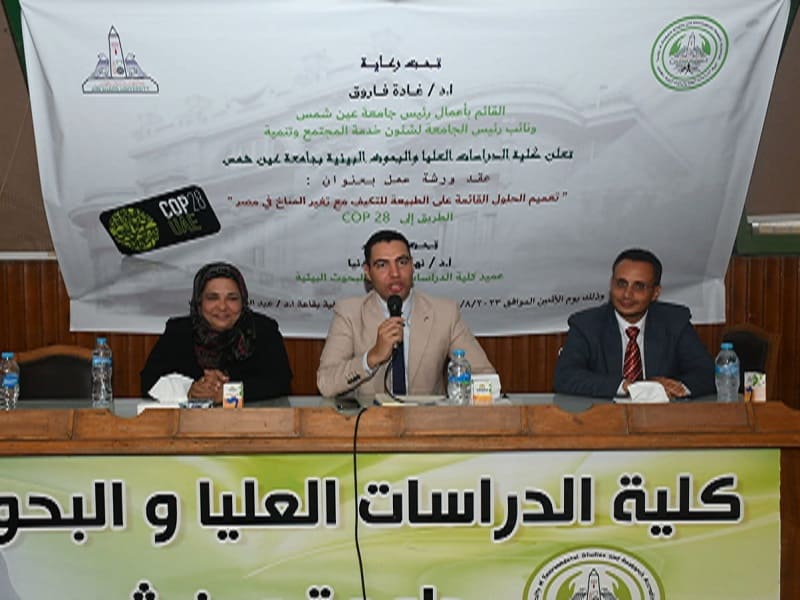
Mainstreaming nature-based solutions to adapt to climate change in Egypt...a workshop at the Faculty of Environmental Studies in preparation for the Cop28 conference
The Faculty of Graduate Studies and Environmental Research at Ain Shams University organized a workshop entitled: “Mainstreaming nature-based solutions for adaptation to climate change in Egypt,” in preparation for the Cop 28 Climate Conference, under the patronage of Prof. Ghada Farouk, Acting President of the University, under the supervision of Prof. Noha Samir Donia, Dean of the Faculty, with the participation of Prof. Muhammad Al-Hajri, Head of the Irrigation and Drainage Unit at the Desert Research Center, Prof. Khaled Shaaban Tarkhan, Secretary-General of the Arab-African Council for Agriculture and Partnership for Development, Prof. Hussein Al-Atfi, Secretary General of the Arab Water Council, Prof. Hala Yousry, Professor of Sociology at the Desert Research Center and Rapporteur of the Rural Women’s Committee, Prof. Hassan Abu Al-Naga, an international expert in water security and sustainable development, Prof. Alaa Muhammad Al-Babli, Dr. Samir Tantawi, climate change consultant at the United Nations, member of the International Panel on Climate Change, and former director of the Land and Water Research Institute.
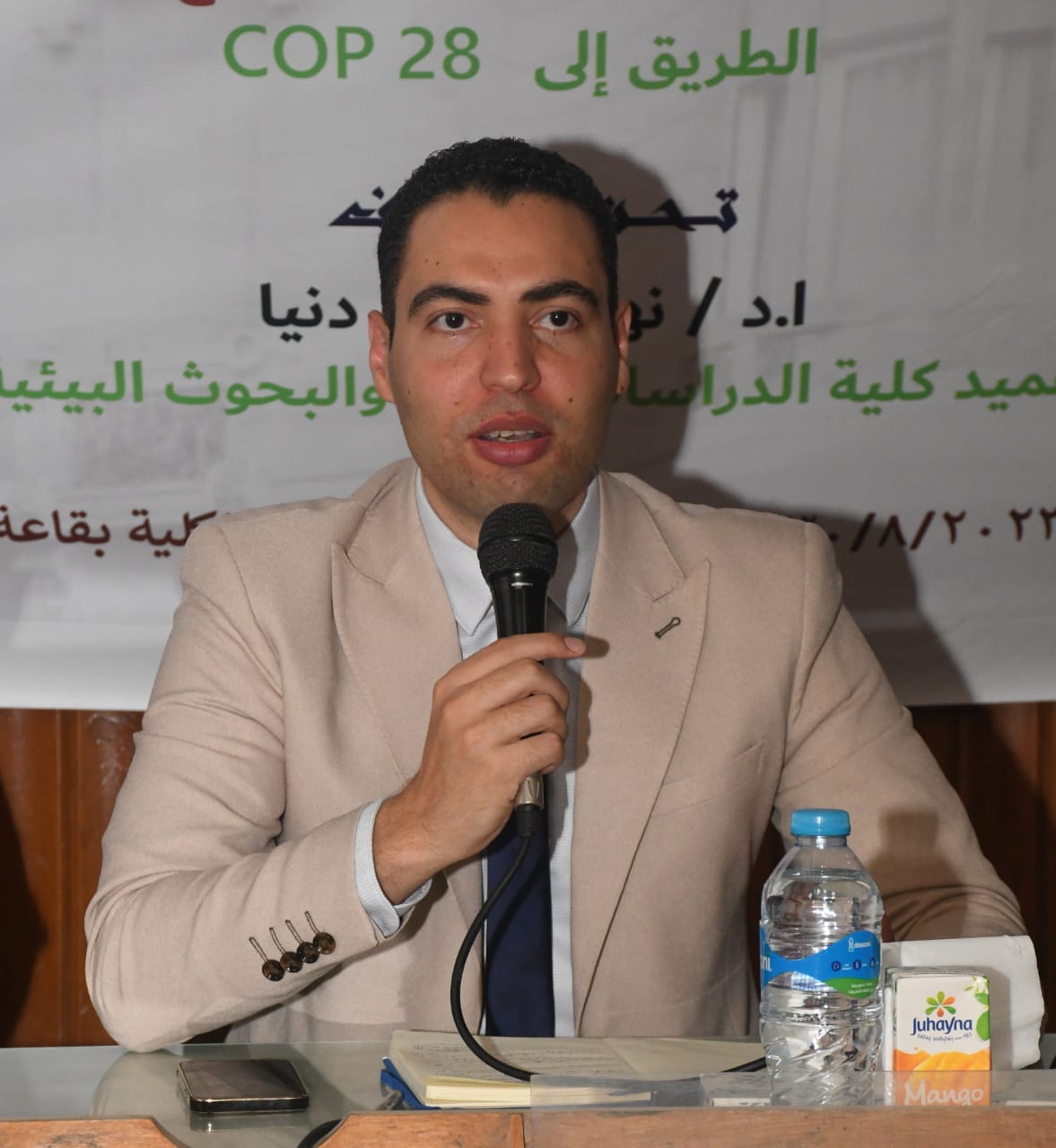 |
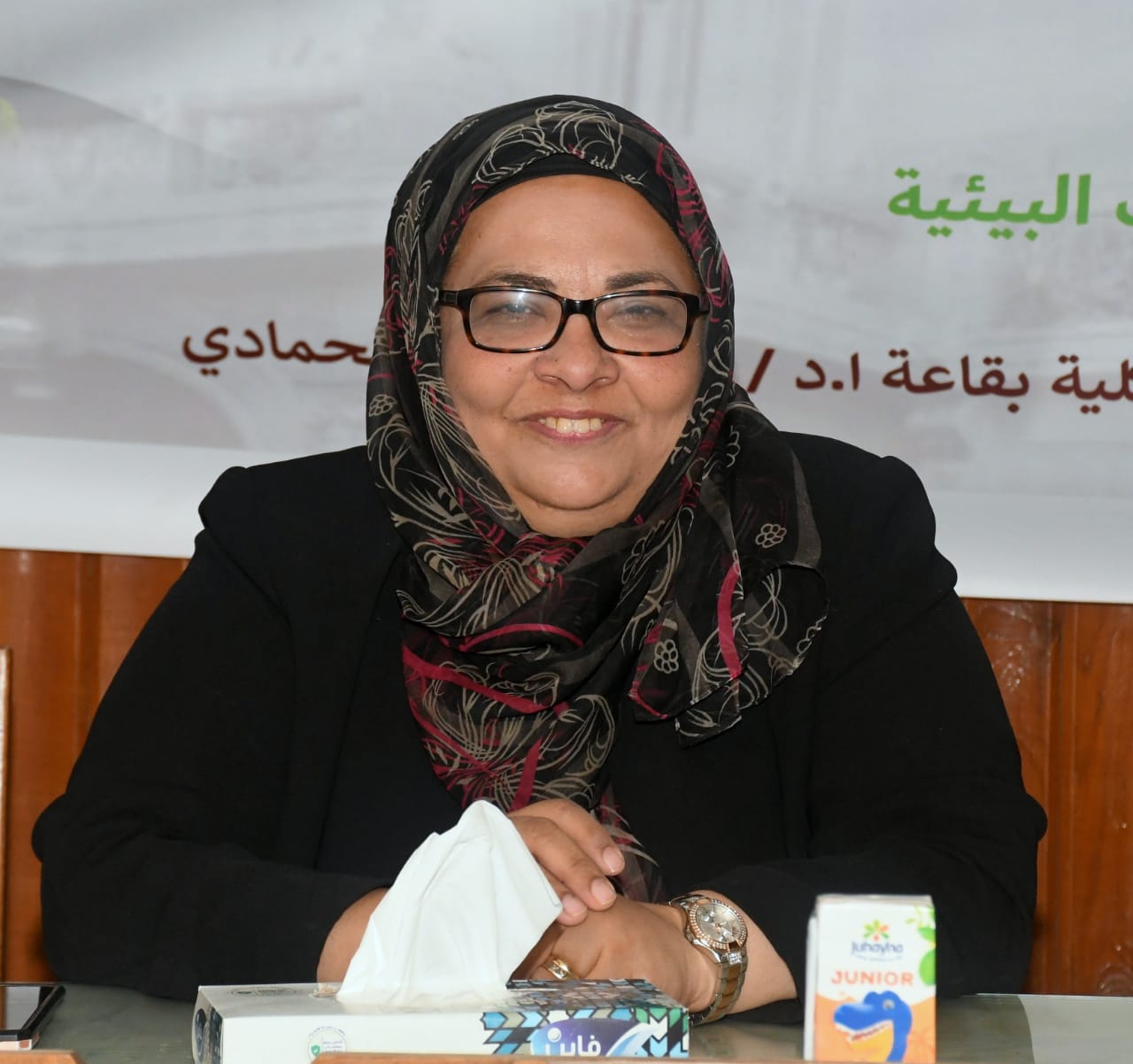 |
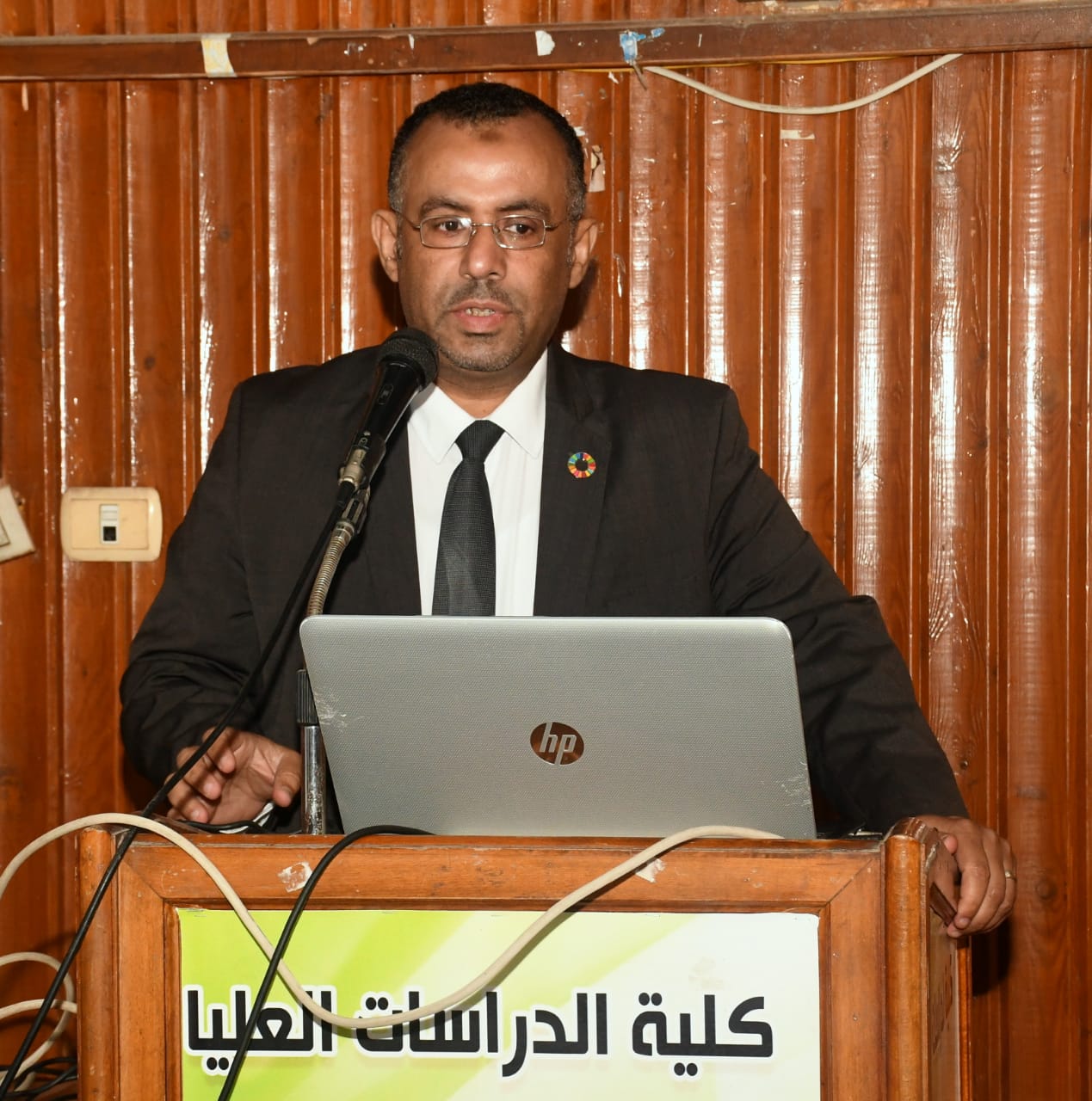 |
||
Prof. Noha Donia, Dean of the Faculty, explained during the workshop that nature-based solutions are considered one of the important methods for confronting environmental and social challenges in Egypt and around the world.
She added that these solutions aim to exploit and enhance natural processes to solve the problems surrounding us, such as air and water pollution, and the decline of biodiversity.
Dr. Engineer Hassan Abu Al-Naga, workshop coordinator and international expert in water security and sustainable development, during his speech, discussed ways to disseminate nature-based solutions in Egypt, stressing that these nature-based solutions depend on the use of natural landscapes and ecosystems to provide multiple benefits, such as improving air and water quality, increasing agricultural sustainability, enhancing tourist attractions, and enhancing biodiversity. These solutions can include creating parks and natural areas in cities, restoring wet spaces, and developing Sustainable agricultural projects.
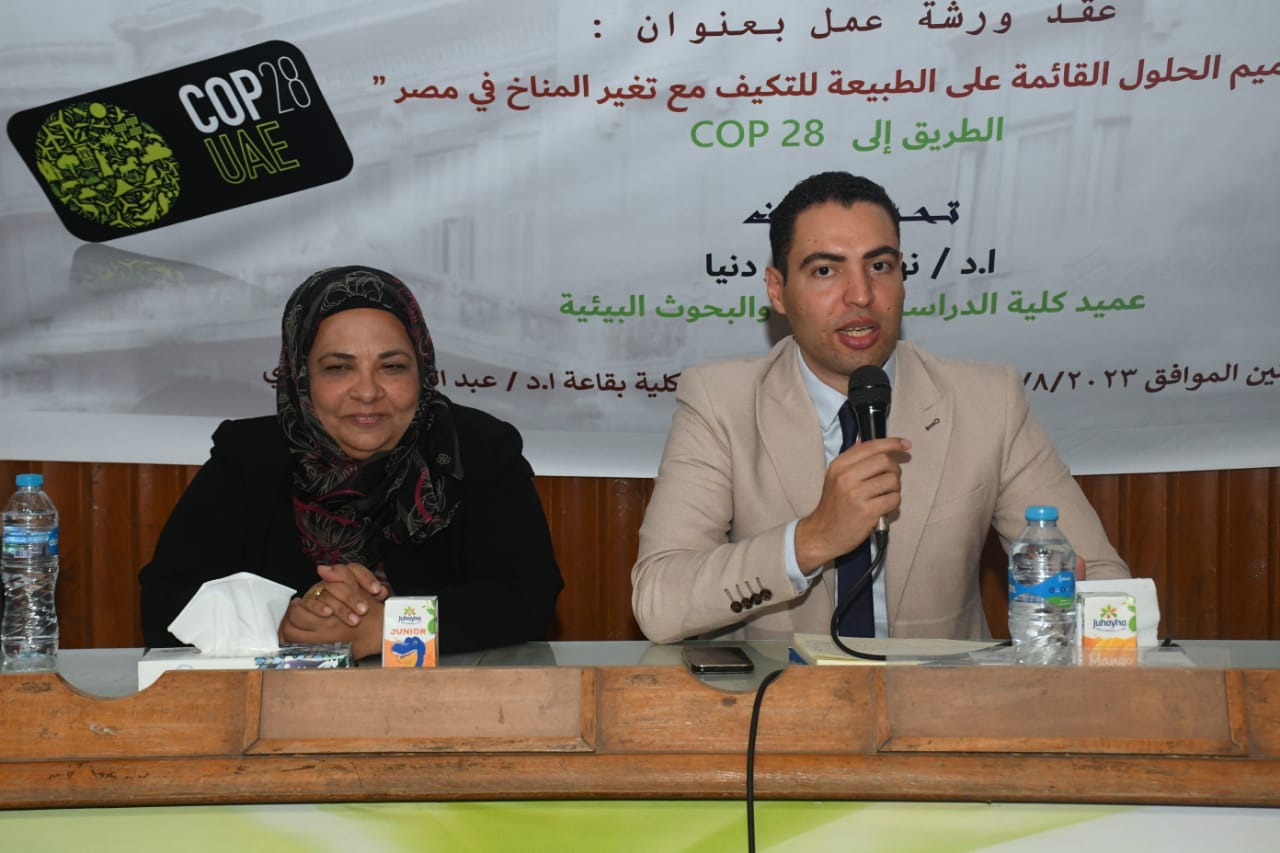 |
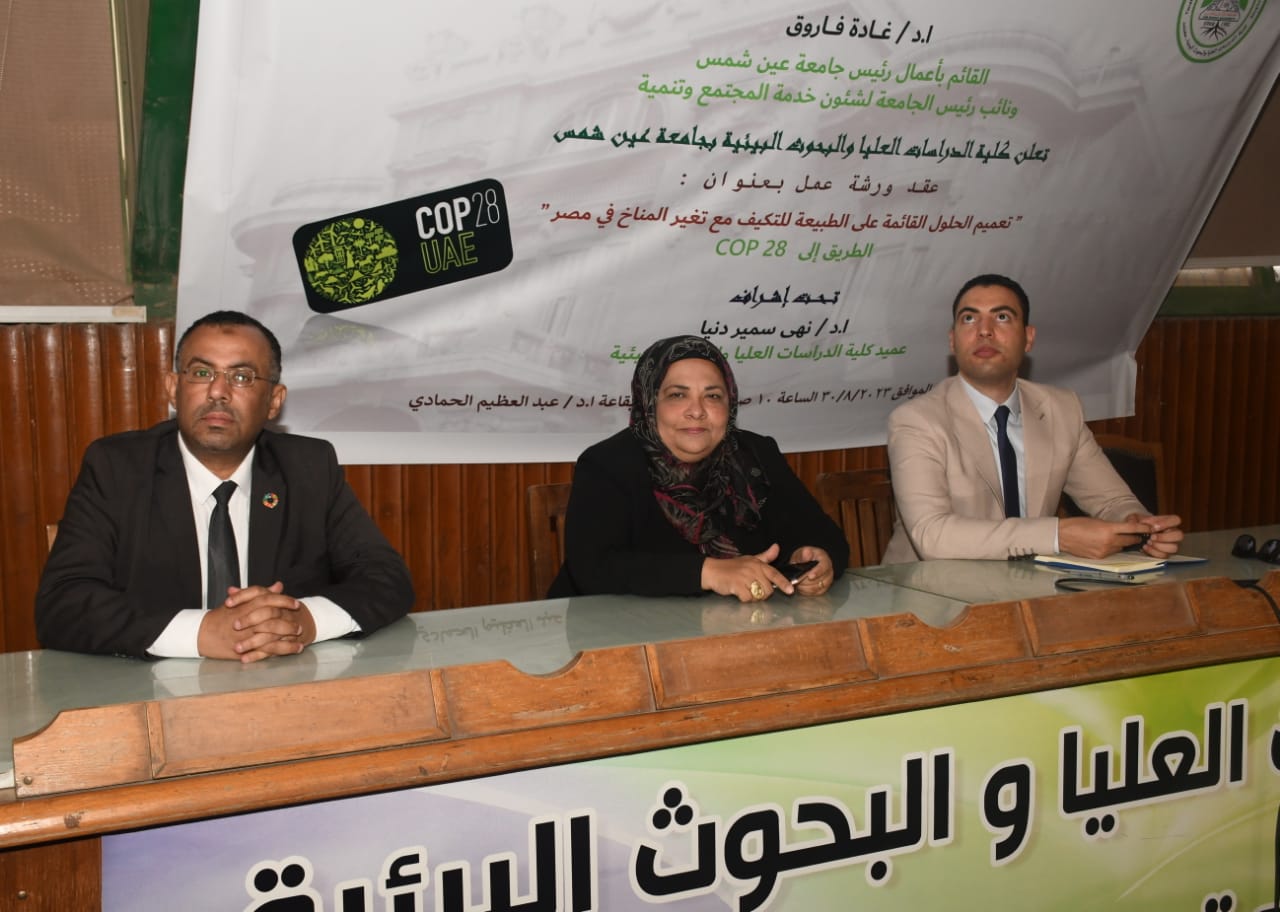 |
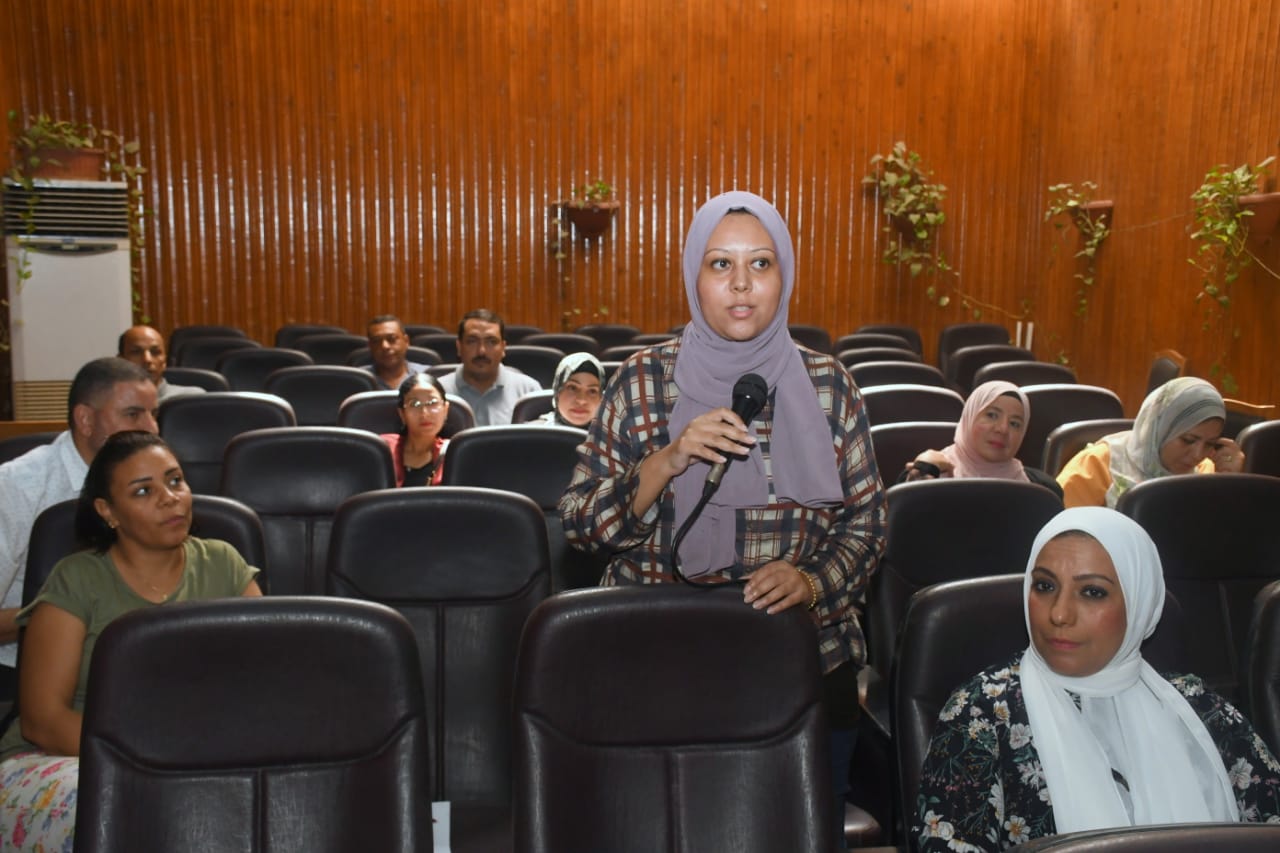 |
||
He pointed out that Egypt can achieve sustainable development to achieve a balance between human needs and preserving the environment, and this requires comprehensive cooperation between governments, institutions, and local communities to develop and implement these solutions and ensure their success in the long term.
Dr. Mohammed Al Hajri, Head of the Irrigation and Drainage Unit at the Desert Research Centre, and Head of the Nature-Based Innovative and Improved Solutions for Sustainable Urban Water (NICE) project, reviewed that this project aims to expand the availability of improved natural solutions (nature-based solutions) to provide solutions to the urban water cycle.
He added that the project will provide basic knowledge to design and implement nature-based solutions, close water cycles in urban areas, and make solutions available and reusable water for various purposes, in addition to mitigating pollution and runoff and forming an attractive and integral part of the urban landscape. The project strategy is based on the comprehensive study of existing nature-based solutions, along with research and development of nature-based solutions in cities (Cairo, Bordeaux, Ostrava).
Dr. Samir Tantawi, a climate change consultant at the United Nations, member of the International Panel on Climate Change, and former director of the Land and Water Research Institute, focused on adapting to existing climate changes without disturbing the issue of mitigating carbon emissions.
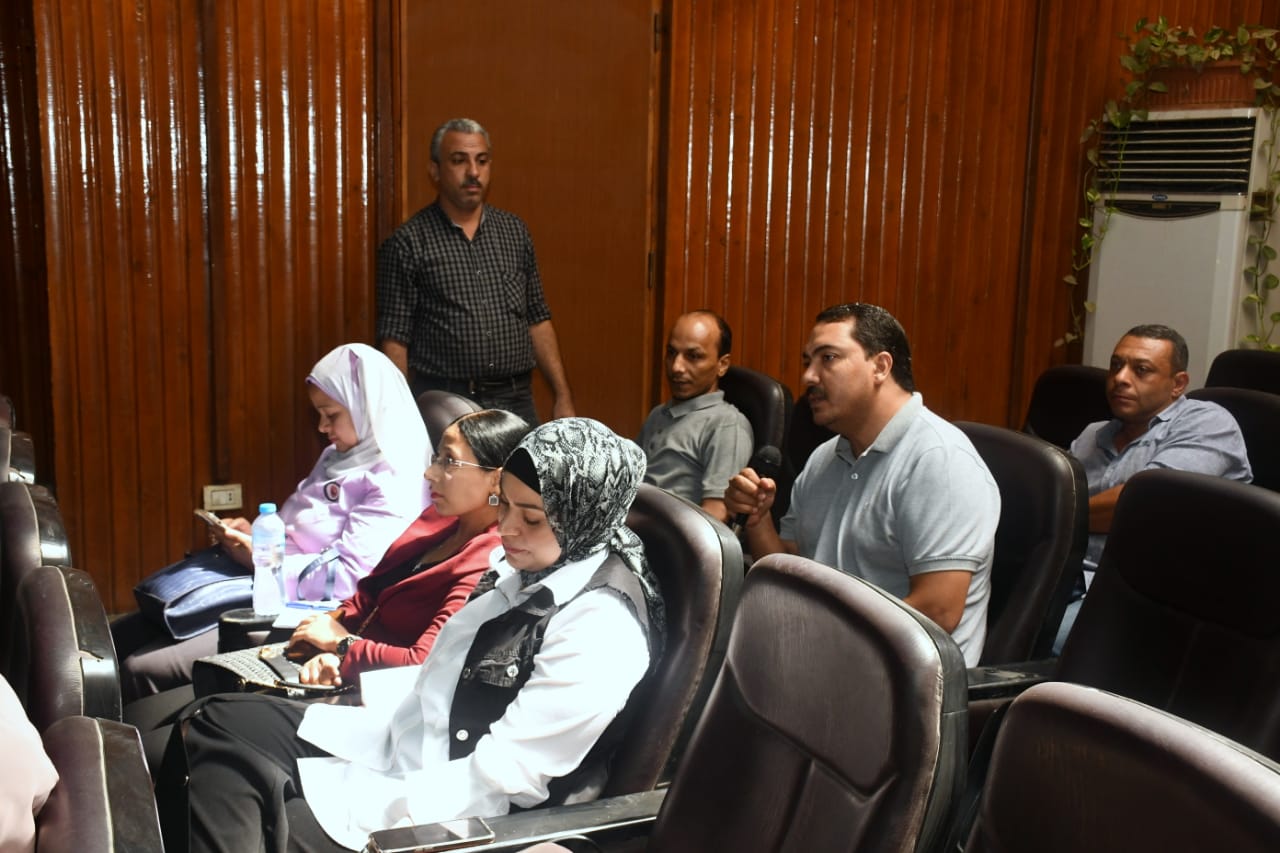 |
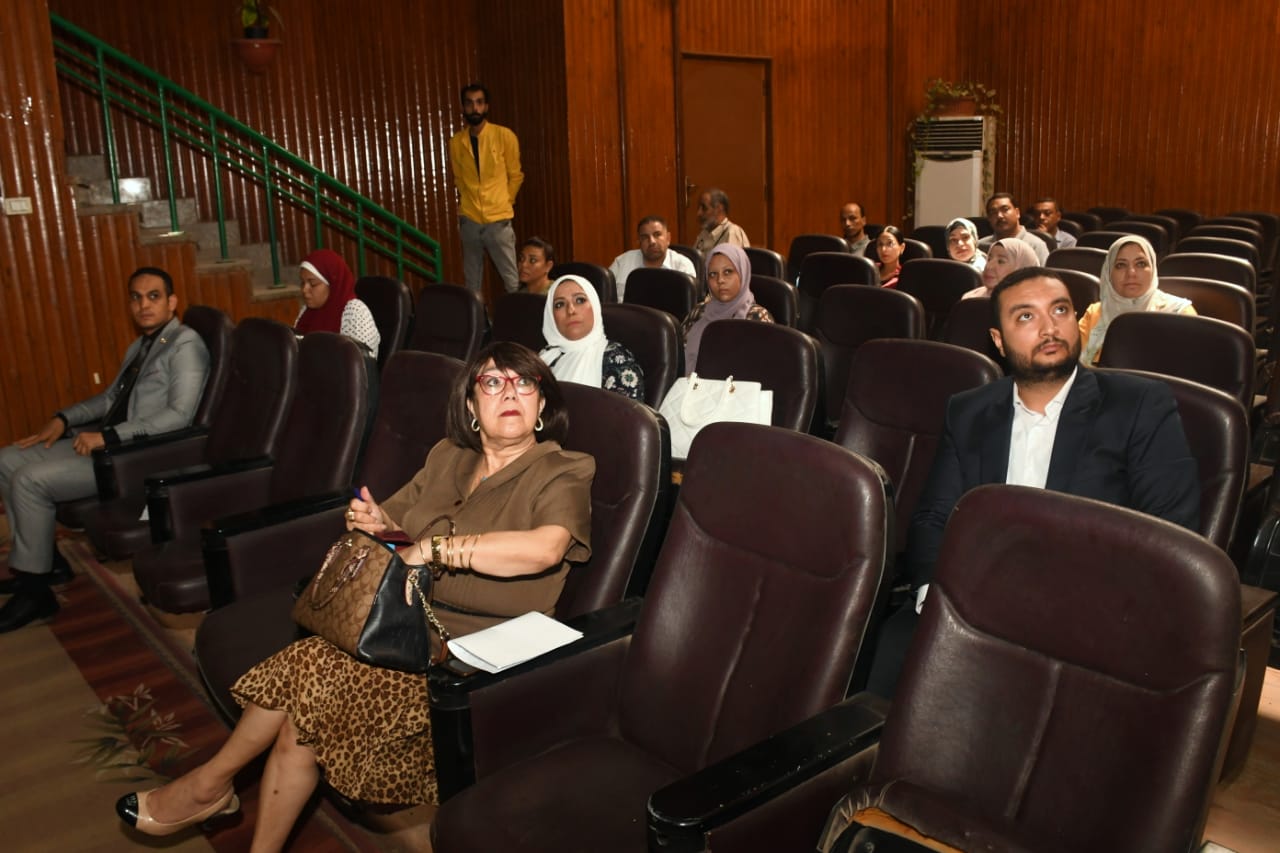 |
He also presented a presentation in which he shed light on the strategic axes regarding adaptation to these changes, which were adopted by the Egyptian Ministry of Environment, and the objectives of this strategy, including Egypt becoming a carbon-neutral country, enhancing climate resilience, and governance of adaptation to climate changes.
He pointed out that many ministries in Egypt have become members of the National Council for Climate Change, and Egypt has also completed developing a strategic plan to adapt and mitigate the effects of these changes and confront the threats that Egypt may face.
Engineer Mohamed Wagih, the smart cities engineer, gave a lecture on the most important technological means and devices that help reduce the waste of water resources, which are used in smart and green cities and modern water stations, which contributes to reducing climate changes significantly and helps achieve Egypt’s agenda regarding the smart cities file.
Dr. Hala Yousry, professor of sociology at the Desert Research Center and rapporteur of the Rural Women’s Committee, gave advice to researchers, especially in the environmental field, that they must think in a new way outside the box to reach scientific research that is widely applied on the ground, stressing that they have a great societal responsibility.
At the conclusion of the workshop, a discussion panel and an interactive session were held for the participants.
.svg)



